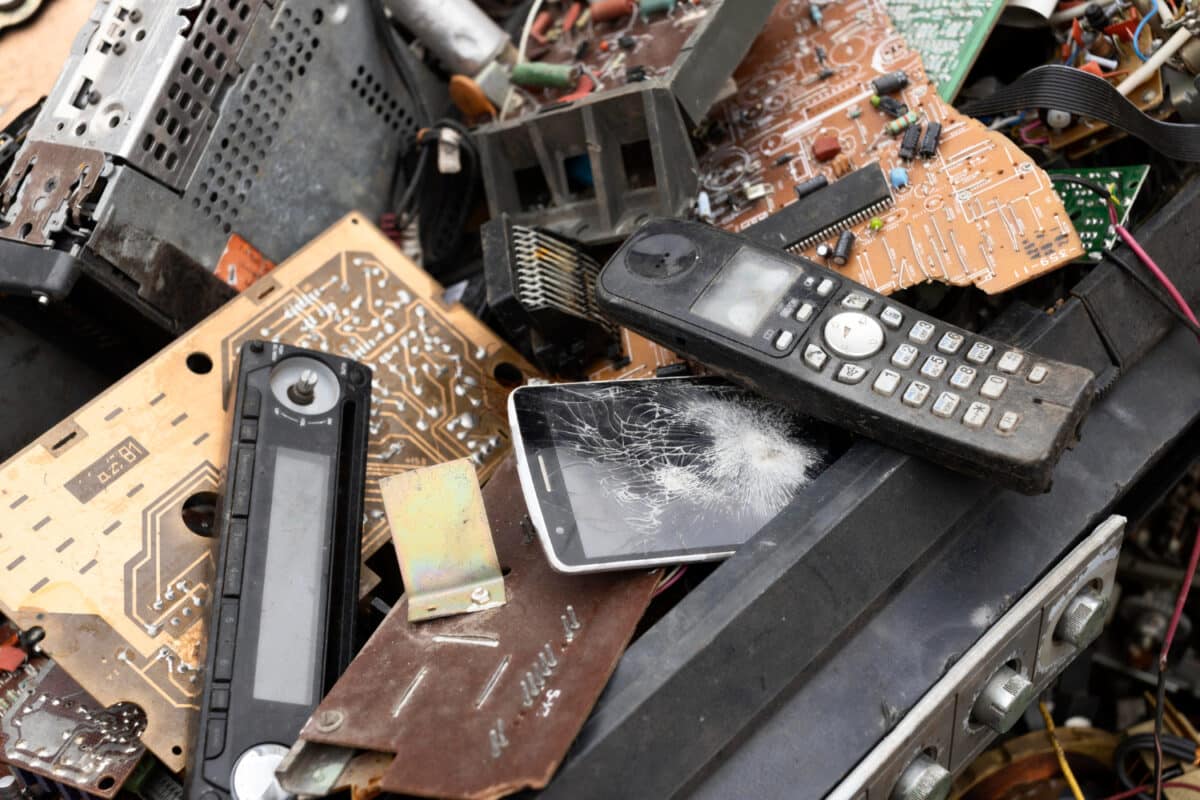The Truth about E-waste Recycling: Myths vs. Facts

E-waste refers to electronic gadgets that are no longer useful and have been discarded. In recent years, there has been an increase in e-waste, which has led to a rise in concerns about the impact of e-waste on the environment.
In response, e-waste recycling has become more popular, with many people advocating for it as a solution to the problem. However, there are several myths and facts surrounding e-waste recycling. Read on as we explore these myths and facts.
Myth: All E-waste Is Recyclable
Fact: While it is true that e-waste contains valuable metals and other materials that can be recycled, not all e-waste is recyclable. Some e-waste contains hazardous materials that cannot be recycled, and it is necessary to dispose of them properly. For instance, CRT monitors contain lead, which is hazardous to the environment and human health. It is essential to dispose of them through a safe and environmentally friendly process.
Myth: E-Waste Recycling Is Expensive
Fact: E-waste recycling is not only beneficial to the environment but also cost-effective. When e-waste is recycled, valuable metals and other materials are extracted, and they can be used to make new products. This reduces the cost of manufacturing new products since recycled materials are cheaper than raw materials. Additionally, when e-waste is not recycled, it ends up in landfills, which can be costly to manage. Therefore, e-waste recycling is a cost-effective solution.
Myth: E-Waste Recycling Is Only for Large Electronics
Fact: E-waste recycling is not limited to large electronics such as televisions and computers. Small electronics such as mobile phones, tablets, and laptops can also be recycled. These devices contain valuable materials such as gold, copper, and silver, which can be extracted and reused. Therefore, it is essential to recycle small electronics as well.
Myth: E-Waste Recycling Is Only for Developed Countries
Fact: E-waste recycling is not limited to developed countries. Developing countries also have e-waste recycling programs that are aimed at reducing the impact of e-waste on the environment. For instance, in Kenya, there is an e-waste recycling program that aims to reduce the amount of e-waste that ends up in landfills. The program collects e-waste from households, businesses, and schools and recycles it. Additionally, there are e-waste recycling companies in developing countries that are creating jobs and promoting sustainability.
Myth: E-Waste Recycling Is Not Necessary
Fact: E-waste recycling is necessary since e-waste has a significant impact on the environment. When e-waste is not recycled, it ends up in landfills, where it takes up space and releases hazardous materials into the environment. These materials can contaminate soil and water, which can be harmful to human health and the environment. Additionally, e-waste recycling reduces the need for raw materials, which can lead to deforestation and other environmental problems.
Myth: E-Waste Recycling Is a Government Responsibility
Fact: While governments have a role to play in e-waste recycling, it is not their sole responsibility. Individuals and businesses also have a responsibility to dispose of their e-waste properly. This can be done by either recycling the e-waste or disposing of it through a proper e-waste disposal facility. Additionally, businesses can implement e-waste reduction programs that aim to reduce the amount of e-waste generated.
Myth: E-Waste Recycling Is a One-Time Solution
Fact: E-waste recycling is not a one-time solution since e-waste is constantly being generated. Therefore, it is essential to have a continuous e-waste recycling program that is aimed at reducing the impact of e-waste on the environment. Additionally, e-waste reduction programs can help reduce the amount of e-waste generated.
Conclusion
E-waste recycling is a critical solution to the problem of e-waste. However, there are several myths and facts surrounding e-waste recycling that need to be debunked. Now, it is clear that e-waste recycling is not only beneficial to the environment but also cost-effective. Therefore, it is essential to promote e-waste recycling and reduce the impact of e-waste on the environment.
Are you interested in electronics recycling in Atlanta? Green Atlanta Recycling is here to give us opportunities to live sustainably. Contact us today to learn more!